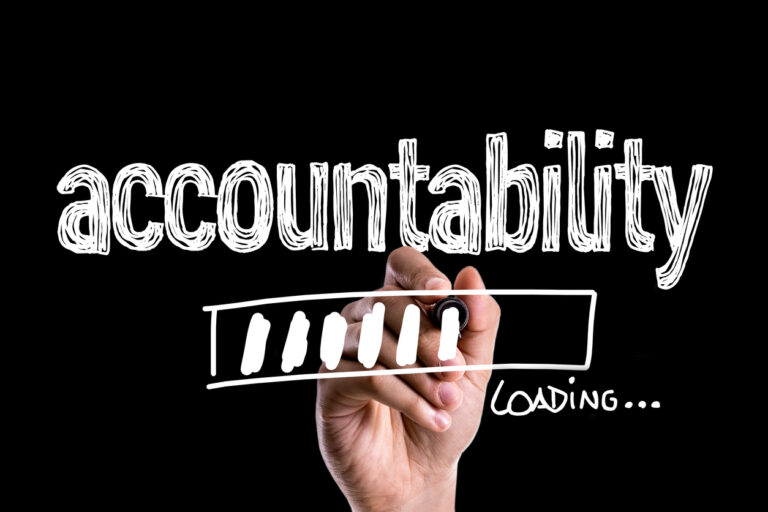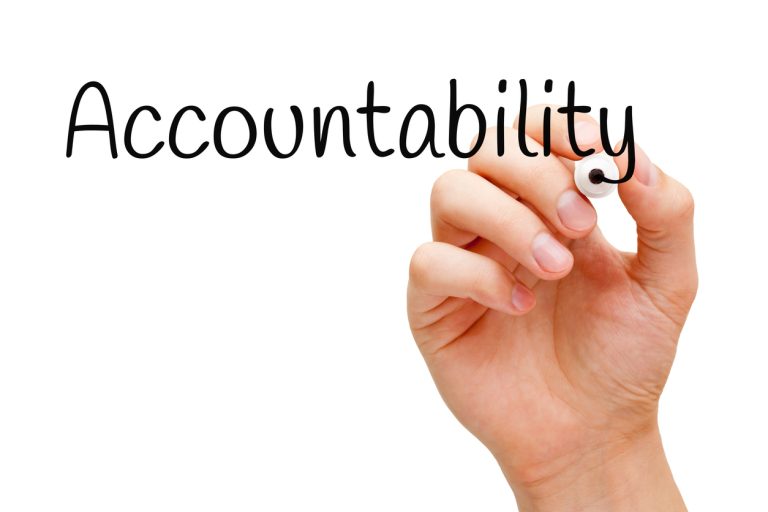2024 has been a year of stark reminders for organisations, with high-profile failures highlighting the profound consequences of poor leadership. From outsourcing responsibility to prioritising profits over people, these lessons emphasise that leadership is defined by decisions, actions, and inactions.
For executives, the message is clear: there is no hiding. Leadership accountability isn’t optional—it’s essential. This blog reflects on a few key cases from the past year, exploring the lessons they offer and how leaders can rethink their approach to align their actions with purpose, rebuild trust, and lead boldly into 2025.
1. Cbus Super: The Danger of Deflecting Accountability
- What Happened:
Cbus Super faced significant backlash and legal scrutiny after failing to process over 10,000 death and total and permanent disability (TPD) claims in a timely manner. These delays, some exceeding 12 months, left vulnerable members and their families exposed during critical times. The mishandling of claims was linked to inadequate oversight of outsourced claims processing, with the Australian Securities and Investments Commission (ASIC) launching legal action against Cbus in late 2024. - The Scale of the Failure:
The delays involved millions of dollars in unpaid claims, leaving families without the financial support they desperately needed. The crisis highlighted the devastating real-world impact of leadership failures—not just on the organisation’s reputation but on the lives of those who relied on it most. - The Leadership Failure:
Cbus leadership initially deflected blame onto the outsourced claims handler, but outsourcing does not absolve leaders of accountability. The finger-pointing only compounded the reputational damage, as members saw little acknowledgment of the pain caused by these delays. Vulnerable stakeholders were left waiting while executives failed to ensure proper oversight and systems were in place. - The Dangerous Misalignment:
On its website, Cbus states, “We look after our members.” But when actions contradict words, it reveals a dangerous misalignment. When an organisation’s values are out of sync with how it operates, it’s not just about compliance—it’s about confidence, trust, integrity, and the identity it projects to members, clients, and the public. This misalignment erodes trust and tarnishes the organisation’s reputation, making it harder to rebuild relationships with stakeholders. - The Lesson:
Organisations can partner with third parties to outsource functions, but they cannot outsource accountability. At the end of the day, it is the organisation’s brand, reputation, and stakeholders that are impacted. Leadership must recognise that managing and overseeing outsourced functions is their responsibility, and when failures occur, the responsibility lies with them. Finger-pointing only deepens mistrust and erodes stakeholder confidence. - The Opportunity:
Executives must establish clear oversight processes for outsourced functions, ensuring accountability and transparency at every level. Leading with empathy and ownership when issues arise builds trust, reinforces the organisation’s values, and protects the people who depend on them.
2. Boeing: Prioritising Profits Over People
- What Happened:
Boeing’s leadership challenges persisted in 2024, with ongoing fallout from the 737 MAX crisis and internal issues related to employee dissatisfaction. Complaints about layoffs, micromanagement, and CEO compensation raised significant concerns about the company’s priorities. - The Scale of the Failure:
Boeing’s focus on short-term profitability over long-term sustainability led to weakened employee morale, cultural unrest, and significant reputational damage. The company also faced billions in continued legal and settlement costs, reflecting the ongoing fallout from its leadership failures. - The Leadership Failure:
Boeing’s leadership ignored employee concerns and failed to address systemic cultural issues. A culture that prioritised efficiency and cost-cutting over safety and collaboration created a toxic environment that stifled trust and innovation. - The Dangerous Misalignment:
Boeing markets itself as a leader in safety and innovation, yet its leadership actions revealed a different reality. This misalignment eroded trust not only among employees but also with customers and the broader public. When an organisation’s stated values don’t align with its actions, it risks losing the very foundation of its success. - The Lesson:
Leadership is about more than shareholder returns—it’s about creating a culture of trust, collaboration, and sustainability. Ignoring the human element of leadership weakens organisations from within and jeopardises their long-term viability. - The Opportunity:
To rebuild trust, Boeing’s leaders must prioritise cultural transformation, actively engage with employees, and align organisational practices with its stated values of safety and innovation. Embedding accountability and integrity at every level is critical to restoring resilience.
3. Woolworths: Avoiding Accountability Fuels Distrust
- What Happened:
- Woolworths faced a series of controversies in 2024, including wage underpayment scandals, allegations of price gouging, and unethical supplier practices. These issues shone a spotlight on systemic failings within the company, especially its leadership.
- The Australian Competition and Consumer Commission (ACCC) accused Woolworths of misleading consumers with pricing practices. Products were allegedly marked up by 15% or more before being discounted as part of promotions, creating the illusion of savings.
- Suppliers raised concerns over unfair agreements, citing power imbalances that left small producers at a disadvantage.
- Woolworths faced a series of controversies in 2024, including wage underpayment scandals, allegations of price gouging, and unethical supplier practices. These issues shone a spotlight on systemic failings within the company, especially its leadership.
- The Scale of the Failure:
- Wage Underpayment: Tens of millions of dollars in unpaid wages impacted thousands of workers, many of whom were already vulnerable.
- Price Gouging: Misleading pricing practices further burdened consumers amidst rising cost-of-living pressures.
- Supplier Exploitation: Unethical agreements jeopardised the financial stability of farmers and small producers, creating significant tensions in the supply chain.
- The Leadership Failure:
Woolworths’ leadership prioritised damage control over accountability, missing a critical opportunity to demonstrate ethical leadership. Instead of addressing the root causes of these controversies, the company’s leaders deflected blame and failed to take ownership of the systemic issues, deepening mistrust among stakeholders. - The Dangerous Misalignment:
Woolworths publicly positions itself as a company that values its employees, customers, and community. However, its actions during these controversies revealed a stark misalignment between its stated values and its leadership behaviour.
This misalignment undermined the trust Woolworths had built over decades, leaving employees, customers, and suppliers questioning the company’s integrity. When values and actions are out of sync, the damage to an organisation’s identity can be profound and long-lasting. - The Lesson:
Trust is earned through transparency and action. Leaders who evade responsibility or fail to align their actions with their organisation’s values risk deepening systemic issues and alienating their stakeholders. Accountability must be at the core of leadership, especially in times of crisis. - The Opportunity:
- Woolworths has a chance to rebuild trust and repair its reputation by:
- Addressing root causes of wage underpayment, pricing practices, and supplier agreements with transparency and fairness.
- Fostering a culture of accountability that ensures future alignment between values and actions.
- Demonstrating leadership integrity by taking proactive steps to protect and uplift all stakeholders—employees, customers, and suppliers alike.
By taking these steps, Woolworths can move beyond damage control to lead with integrity, rebuilding trust and fostering stronger relationships across its ecosystem.
Woolworths has an opportunity to rebuild trust by addressing root causes, fostering a culture of accountability, and leading with integrity. By taking decisive action and aligning leadership behaviours with organisational values, it can begin to repair its reputation and relationships. - Woolworths has a chance to rebuild trust and repair its reputation by:
The Call to Action: Rethink How You Show Up
2024 has shown us that leadership failures—whether through inaction, evasion, or misplaced priorities—carry real and lasting consequences. As we step into 2025, executives have an opportunity to lead differently.
To thrive, leaders must:
- Recognise that accountability cannot be outsourced or avoided.
- Align their actions with their organisation’s values.
- Create cultures of trust, collaboration, and innovation.
The question for leaders is simple: How will you show up?
The Risk Rebel Perspective: Bold Leadership is People-Centred
At the heart of these lessons lies a truth: Leadership is about owning risk, embracing accountability, and aligning actions with purpose. Risk Rebels understand that bold leadership isn’t about avoiding mistakes—it’s about responding with integrity, transparency, and courage.
2025 is the year to lead with intention, to rebuild trust, and to turn risk into opportunity.
Share Your Leadership Intention for 2025
We believe in the power of reflection and action. As you look ahead to 2025, we invite you to share:
- What is your leadership intention for the year?
- How will you align your actions with your values?
Leave a comment or connect with us—we’d love to hear your perspective. Together, let’s make 2025 the year of bold, people-centred leadership.
Are you ready to step forward?




